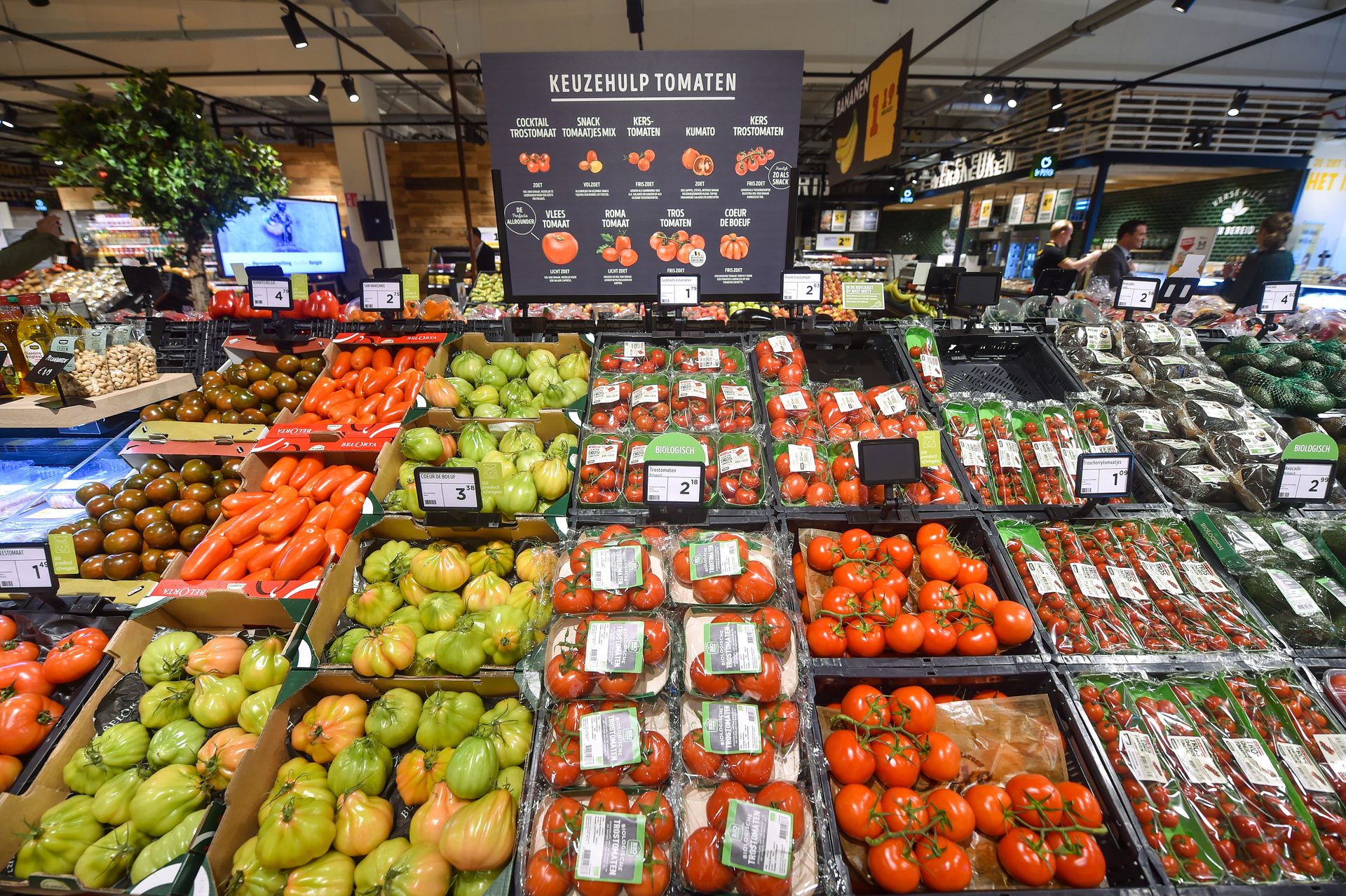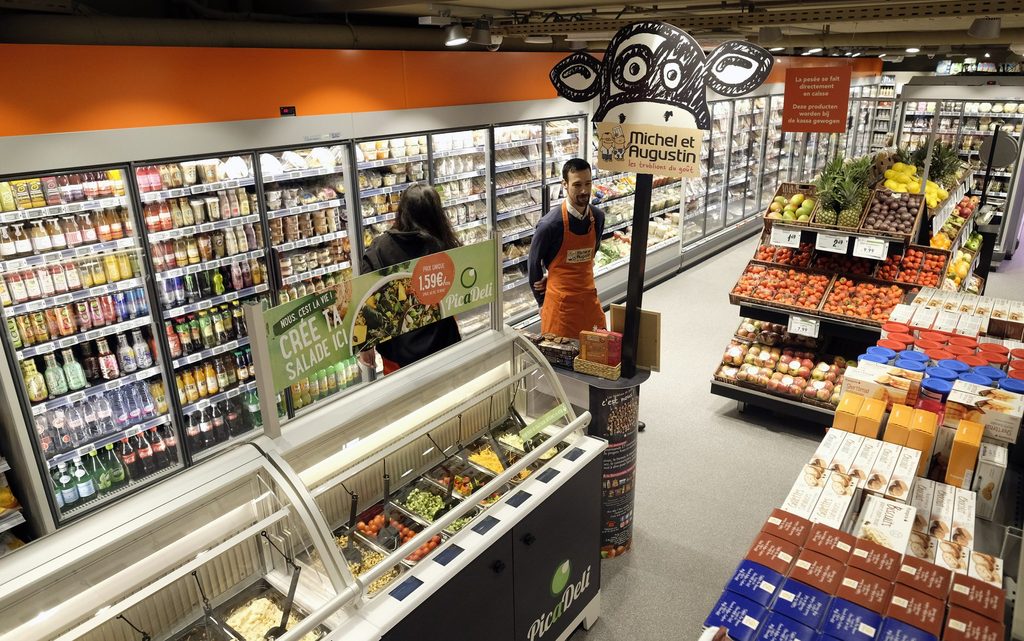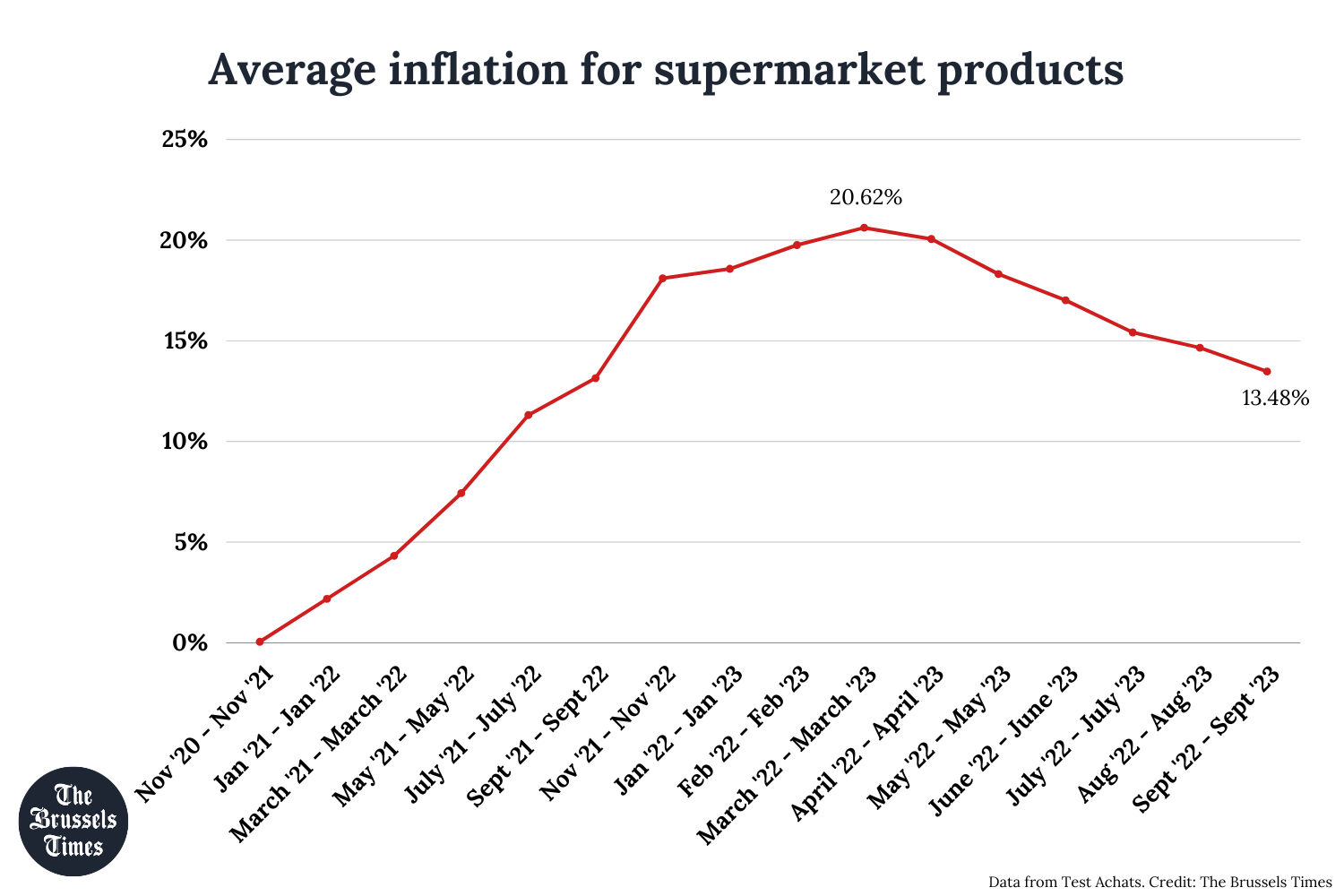For the first time since supermarket prices spiked a year and a half ago, groceries were cheaper this month compared to the last one. However, the cost of supermarket products remains much higher than before the trend started.
Every month since supermarket inflation started rising above normal levels, consumer rights organisation Test Achats has published monthly prices and what products have increased most in price. In September, it recorded an inflation rate of 13.48%, which is a little lower than in August, when prices were already decreasing slowly.
It marks the first time in a while that the price of a shopping trolley for an average household of two people costs less than the previous month.
"We are pleased that the falling inflation is having a concrete effect on shopping carts for the first time," said Laura Clays, spokesperson for Testaankoop. "But we have to remain realistic: falling inflation remains inflation. Prices have increased enormously compared to last year."
Last month, a family of two spent an average of €531 in the supermarket, which is €2 less than last month but still €63 more than last year.
Vegetables remain main driver
For seven months, vegetables have been the main drivers of high inflation rates: they are on average 26% more expensive than last year. The price of carrots has risen by no less than 57%, while onions are 53% more expensive.
Ketchup (+46%) and tomato puree (+39%) are in third and fourth place when it comes to products of which prices have risen most, with frozen chips (+38) rounding out the top five.

The fruit and vegetables department. Credit: Belga/ Jonas Roosens
Potatoes were also included among the 20 products that increased the most in price last year for the first time. The fact that a basic product like potatoes has risen so sharply in price worries Test Achats.
Meanwhile, the inflation rate of products that initially drove the higher prices such as frying oil, spaghetti and Gouda cheese, has more than halved, but the rate remains higher than 20% for most of these products.
Continued monitoring
For Test Achats, the decreases are not large enough and, above all, are not coming fast enough. It continues to argue that, on international markets, the prices of cereals, oil and dairy have been falling for some time, adding that this is still not sufficiently reflected in the end products.
"International dairy prices have fallen slightly less sharply, by 26% from June 2022. However, nine out of 10 bottles of semi-skimmed milk and packets of young (gouda) cheese have still increased in price since then," it noted.
Among cereals, Test Achats sees a better evolution, but even there 60% of packs of flour and pasta are still more expensive than in October 2022, even though the price of cereals has fallen by 18%. It stressed that it will continue to monitor further evolutions.
Federal Minister of the Economy Pierre-Yves Dermagne announced in June that he expected food producers to reach an agreement on bringing down supermarket food prices by mid-July at the latest, and launched a monthly monitoring by the Prices Observatory.
Related News
- Colruyt Group buys nearly 60 supermarkets off Delhaize in sector reshuffle
- Calls for 'clearer' energy contracts as 2 million Belgian households still overpaying
Another study from the Price Observatory will be published in the autumn, looking into why there are price differences between Belgian supermarkets and those in neighbouring countries. During the winter period, the Belgian Competition Authority will compare a wide range of prices between Belgium and the three neighbouring countries over a long period.
Test Achats said it is awaiting the analyses of the Price Observatory and the Competition Authority to "clarify whether these, sometimes very strong, price increases can be justified."


